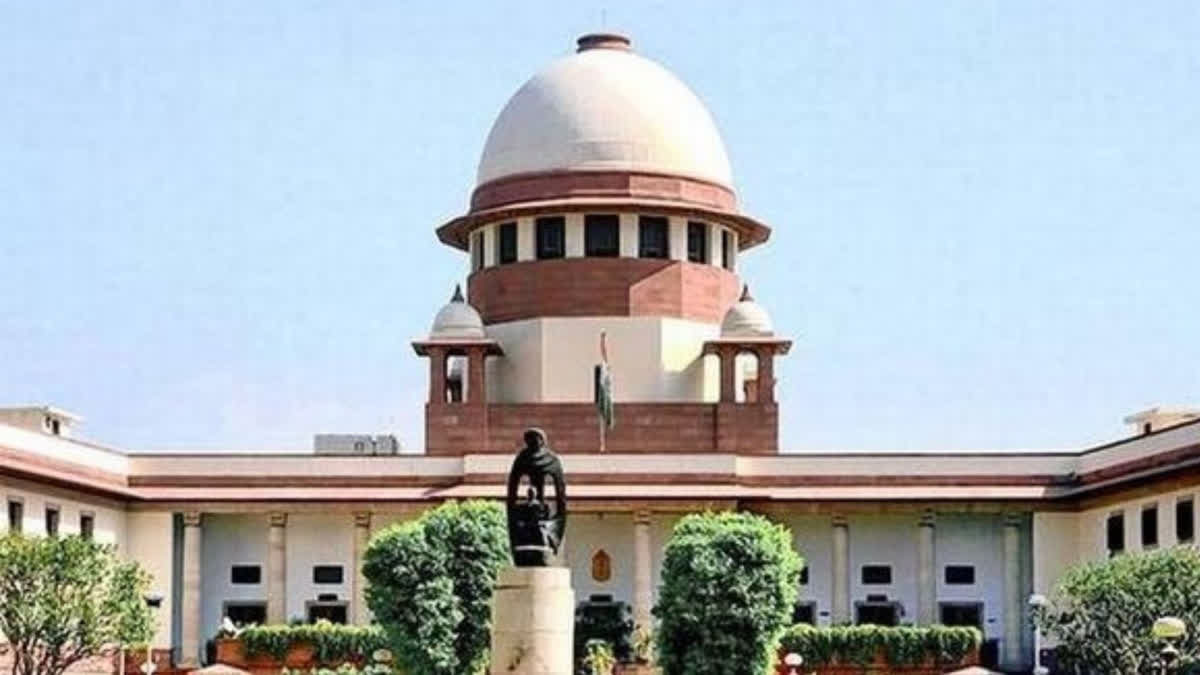New Delhi : The Centre Tuesday told the Supreme Court that Muslim students form a majority, around 70 to 80 per cent, at Aligarh Muslim University (AMU) are Muslims, even without reservation, and stressed that an institution of national importance declared by the Constitution must reflect the national structure.
Solicitor General Tushar Mehta, representing the Centre, submitted before a seven-judge bench led by Chief Justice of India D Y Chandrachud that approximately 70 to 80 per cent students are Muslims at AMU, in the absence of reservation, and added, “I am not on religion. It's a very, very serious phenomenon…..”. Mehta stressed that an “institution of national importance declared by the Constitution must reflect the national structure”.
Mehta contended before the court that social justice would be a very determining factor in deciding the case. “It is almost an admitted position between the parties that even without reservation, approximately 70 to 80 per cent students are Muslims," Mehta reiterated.
Vehemently arguing on the aspect of reservation, the law officer said that a deserving candidate of Scheduled Caste or Scheduled Tribe or a socially and economically backward class person would not have the reservation. “But a person having everything at his command based on religion would have reservation...," Mehta submitted, adding that AMU is one of the finest universities and is recognised as an institution of national importance.
The bench, also comprising justices Sanjiv Khanna, Surya Kant, J B Pardiwala, Dipankar Datta, Manoj Misra and Satish Chandra Sharma, is hearing a batch of petitions regarding the minority status of AMU.
During the sixth day of daylong hearing, Mehta said there was no concept of minority or minority rights in 1920 and the AMU Act came into being in the same year. The bench queried Mehta that in the absence of an express obliteration of the past by the statute, can the court not look into the pre-existing history unless we find that there are certain express provisions in the statute? Mehta replied "no" and added that history always has several shades.
Citing the AMU (Amendment) Act 1981, passed by the Parliament which gave back the minority to the AMU, the bench said the intent behind it was to modify the statute so that reasoning given in the Basha case was not applicable. Mehta, who concluded his arguments today, in his written submission filed in the apex court, had said a minority educational institution is not required to implement reservation policy under section 3 of the Central Educational Institution (Reservation in Admission) Act, 2006 (as amended in 2012).
Senior advocate Rakesh Dwivedi, representing a party in the matter, argued that to be a Muslim is one thing and to be a minority in another thing and stressed that minority is a political concept. Dwivedi in 1920, neither the Muslims nor the Hindus were part of the government and they were equal in the sufferings. He said there was no question of minority and the relationship was of the imperial ruler and the subject.
Against the backdrop of the issue before the court, whether AMU was established and administered by a minority, the bench queried Dwivedi, is it your contention that because prior to 1947 there was no concept of minority as we constitutionally recognise today? “Therefore, any institution which has been established before 1947 or really before the advent of the Constitution...no such institution will be entitled to claim minority status? It will boil down to that," said the bench.
The bench further queried, suddenly they got minority status after 1950? What is the big change that took place? Dwivedi said by that time, the country stood divided into two. The arguments in the matter will continue on Wednesday.
In 1967, a five-judge constitution bench in the S Azeez Basha versus Union of India case in 1967 held that since the Aligarh Muslim University was a central university, it cannot be considered a minority institution. The university got back its minority status when Parliament passed the AMU (Amendment) Act in 1981.
- " class="align-text-top noRightClick twitterSection" data="">


